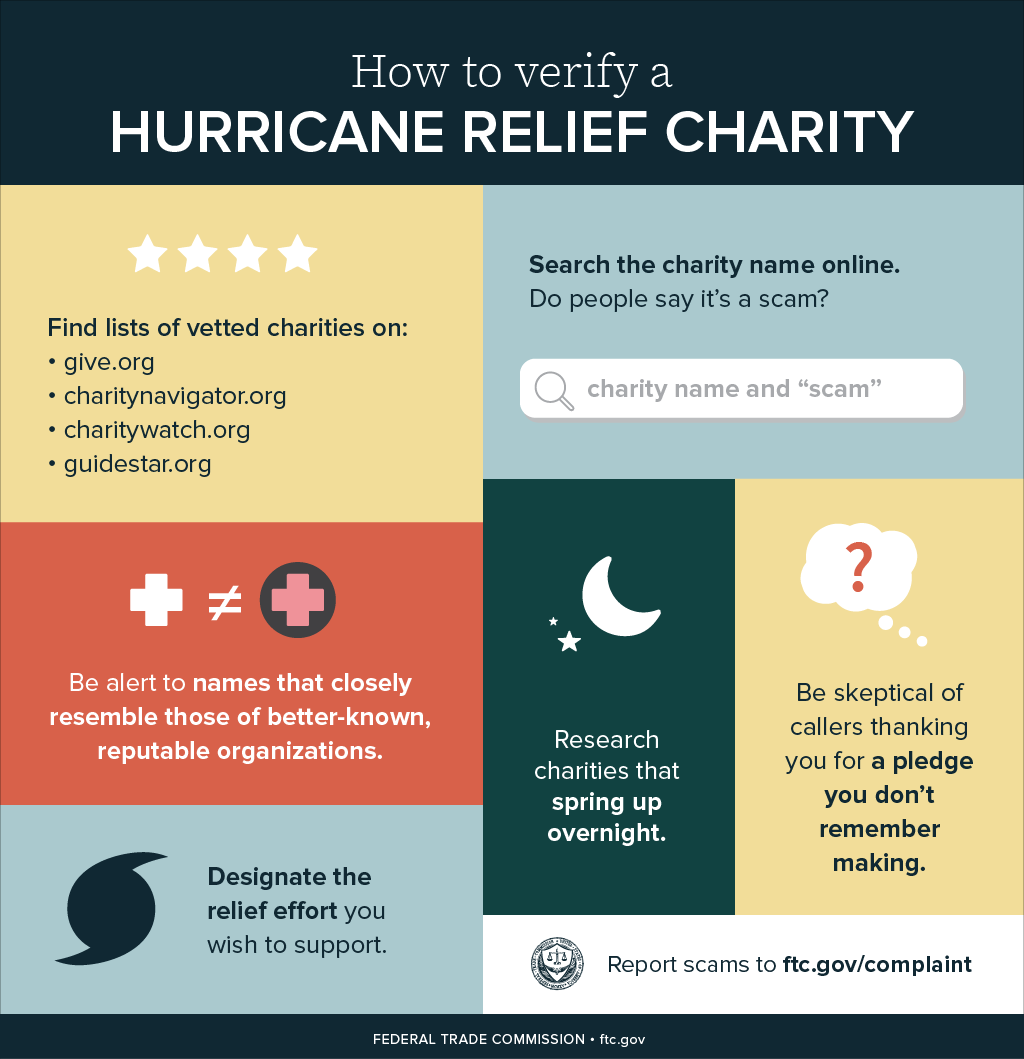Hurricane Lane is a Category 4 churning in the Pacific with an eye toward the Hawaiian islands. If you haven’t made storm preparations, now is the time. The FTC has information to help you prepare for, deal with, and recover from the long-term impacts of a weather emergency. But how about the rest of us ready to help with donations after the hurricane? You should know about how to avoid hurricane relief charity fraud.
Here’s the rundown. After a hurricane hits, people rush to help those in need. If you are making a donation for hurricane relief, remember to give enough thought to where exactly you are sending your money. Because scammers are hoping that generous people like you, in your eagerness to help, won’t do your homework so they can steal that money. The best way to avoid this and other kinds of charity fraud is to go online and do your research to make sure your money goes to a reputable organization.
You can start at ftc.gov/charity – we have articles and resources, including links to six organizations that can help you check out individual charities.
For more information, look below to check out our new charity fraud video and a handy infographic on verifying a hurricane relief charity.

Have a charity fraud complaint? Tell us, at ftc.gov/complaint.

It is your choice whether to submit a comment. If you do, you must create a user name, or we will not post your comment. The Federal Trade Commission Act authorizes this information collection for purposes of managing online comments. Comments and user names are part of the Federal Trade Commission’s (FTC) public records system, and user names also are part of the FTC’s computer user records system. We may routinely use these records as described in the FTC’s Privacy Act system notices. For more information on how the FTC handles information that we collect, please read our privacy policy.
The purpose of this blog and its comments section is to inform readers about Federal Trade Commission activity, and share information to help them avoid, report, and recover from fraud, scams, and bad business practices. Your thoughts, ideas, and concerns are welcome, and we encourage comments. But keep in mind, this is a moderated blog. We review all comments before they are posted, and we won’t post comments that don’t comply with our commenting policy. We expect commenters to treat each other and the blog writers with respect.
We don't edit comments to remove objectionable content, so please ensure that your comment contains none of the above. The comments posted on this blog become part of the public domain. To protect your privacy and the privacy of other people, please do not include personal information. Opinions in comments that appear in this blog belong to the individuals who expressed them. They do not belong to or represent views of the Federal Trade Commission.